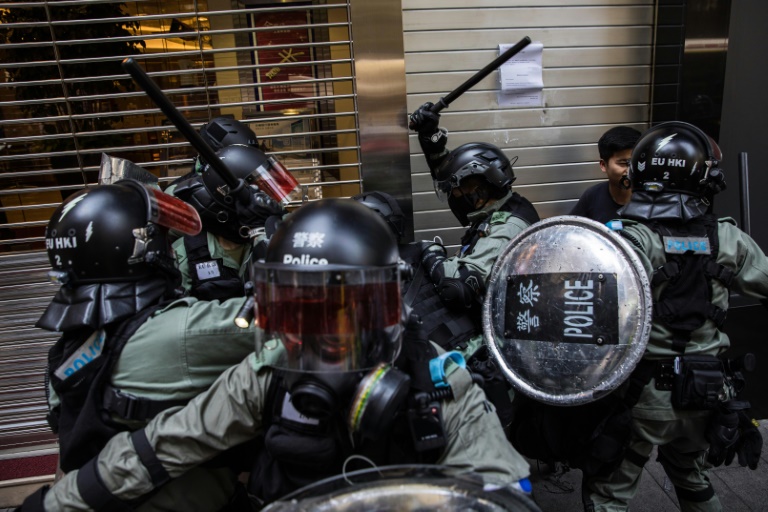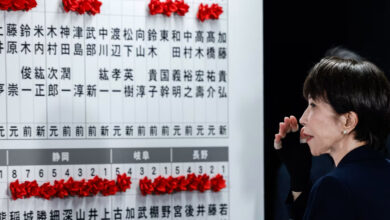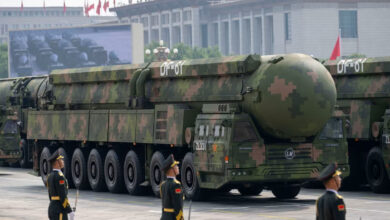
An international panel of experts hired to advise Hong Kong on the police response to huge pro-democracy protests announced Wednesday they were quitting, saying the watchdog was not fit for purpose “in a society that values freedoms and rights”.
The group’s damning conclusion is a blow to Hong Kong’s government, which has insisted its Independent Police Complaints Commission is capable of holding the force to account over snowballing claims of brutality.
“We ultimately concluded that a crucial shortfall was evident in the powers, capacity and independent investigative capability of IPCC,” the experts said.
Critics have long charged the body lacks adequate powers, is stacked with pro-establishment figures and has been toothless when it comes to keeping the police in line.
The watchdog can only handle complaints forwarded by the police themselves and it cannot subpoena documents or compel witnesses to testify.
Such limitations, the expert panel said, do not “begin to meet the standards citizens of Hong Kong would likely require of a police watchdog operating in a society that values freedoms and rights”.
Protests have rocked Hong Kong for more than six months, with up to two million people taking to the streets, initially against a now-shelved extradition bill.
Latterly, one of the core demands of protesters — alongside fully free elections — has been an inquiry into the police, who have been left to battle increasingly violent black-clad activists and are now loathed by significant chunks of the deeply polarised population.
But both chief executive Carrie Lam and the police have repeatedly rejected those calls.
Pro-democracy lawmaker Tanya Chan described the resignation of the expert group as a “vote of no confidence” in the IPCC and the interim report it is expected to produce next year.
– Public row –
The panel was announced in September and was chaired by Sir Dennis O’Connor, who was tasked by the British government to write a report on the police after the 2011 London riots.
It included current or former police watchdog chiefs from Canada, Australia and New Zealand, and a British specialist on crowd behavior.
A month ago, a leaked statement from the group revealed they felt the police watchdog was not equipped to carry out a proper investigation, and suggested a fully independent inquiry would be better suited.
But their frank assessment was not welcomed by Anthony Neoh, the IPCC’s head.
He gave an interview to a mainland Chinese media outlet rebuking the panel, saying they “do not understand Hong Kong’s situation”.
On Sunday, an estimated 800,000 people marched peacefully through the city’s streets Sunday in a movement that has become a popular revolt against Beijing’s authoritarian rule.
The last three weeks have seen a rare lull in the violence and vandalism after pro-democracy parties won a landslide in local council elections.
“Do not waste time, and please grab this golden opportunity to persuade Beijing… to support an independent commission of inquiry,” lawmaker Chan added.
An end to violence is something Lam has insisted must be a precursor to meaningful dialogue.
But she has shown no sign she is willing to budge, leading to fears clashes could resume.
In her weekly press conference on Tuesday she dismissed protesters’ demands once more as she announced plans to go to Beijing this weekend where she is expected to meet with Chinese leader Xi Jinping.
China has publicly thrown its support behind both Lam and the city’s police, even as their approval ratings take a hammering.
Image: AFP/File / DALE DE LA REY The Hong Kong government has repeatedly rejected demands from protesters to have a fully independent inquiry into police behavior during the protests




